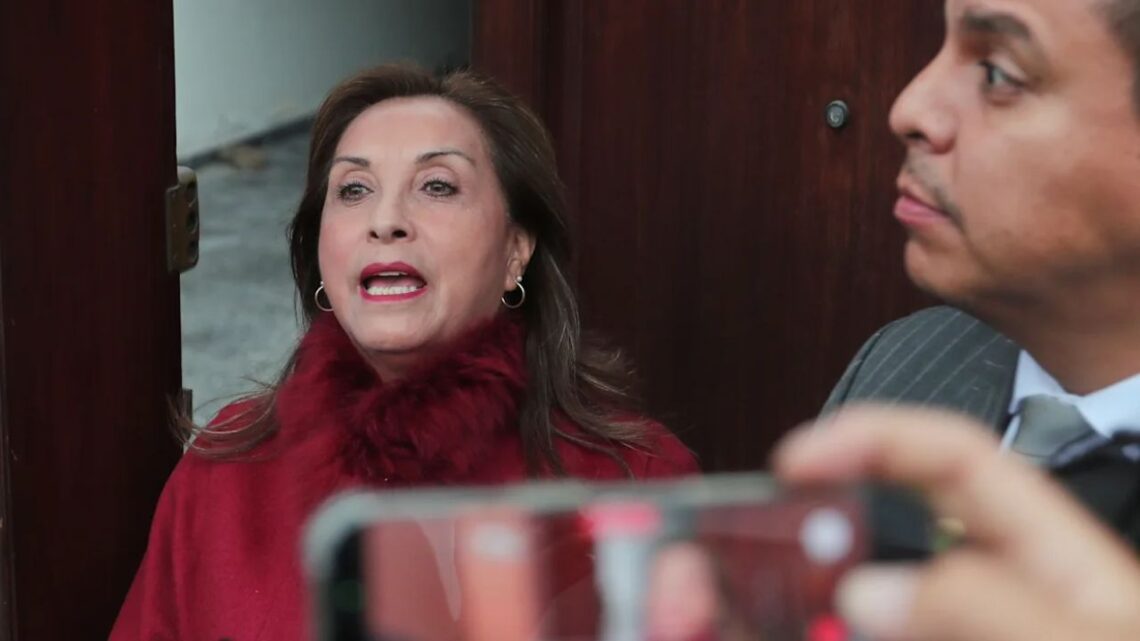A Peruvian court has rejected a 36-month travel ban requested by prosecutors against ousted President Dina Boluarte, ruling there is no flight risk while she remains under investigation for alleged money laundering and abuse of office.
The decision follows her impeachment on October 10, 2025, and the swearing-in of José Jerí as interim president—Peru’s seventh leader in roughly a decade.
The judge’s ruling keeps Boluarte free to travel while legal proceedings continue, even as a separate 18-month travel restriction motion is expected to be evaluated.
Key Details of the Ruling
Judge Fernando Valdez concluded that the Prosecutor’s Office had not demonstrated concrete evidence that Boluarte intended to flee or obstruct justice.
Prosecutors argued for a three-year ban based on ongoing investigations that include scrutiny of luxury watches, possible illicit enrichment, and questions around official absences related to a medical procedure in 2023.
Boluarte has denied wrongdoing and pledged to cooperate with authorities.
Political Context and Stakes
Peru’s political system remains strained. The impeachment vote—reported as 124–0—came amid public frustration over rising crime and governance scandals.
Authorities have reported thousands of homicides in 2025 and a surge in extortion complaints, intensifying calls for stronger security policies and cleaner politics.
With José Jerí now at the helm and general elections slated for April 2026, the government faces pressure to deliver public safety and institutional stability while allowing the judiciary to move forward with due process.
What Happens Next
While the 36-month travel-ban bid was rejected, the judiciary is poised to review an additional request seeking an 18-month restriction in a related case.
Prosecutors may also pursue asset monitoring, reporting requirements, or other precautionary measures.
Any future ruling could tighten Boluarte’s mobility, but for now the court has signaled that preventive restrictions must be narrowly tailored and evidence-based.
Why This Matters
- Rule of law: The decision reinforces the principle that preventive measures like travel bans require specific, demonstrable risks.
- Governance: With seven presidents in around seven years, Peru is grappling with leadership churn that complicates policy continuity.
- Public confidence: The ruling arrives during a crime wave, making visible progress on both security and anti-corruption critical to restoring trust.
- Elections 2026: The legal trajectory of high-profile figures will shape the campaign climate and voter sentiment ahead of April 2026.
Key Facts At A Glance
| Item | Detail |
|---|---|
| Person | Dina Boluarte, ousted former President of Peru |
| Prosecutors’ Request | 36-month travel ban |
| Court Decision | Rejected; judge said no flight risk |
| Judge | Fernando Valdez |
| Status of Investigations | Alleged money laundering, abuse of office, luxury asset scrutiny |
| Alternate Motion | Court to assess separate 18-month travel-ban request |
| Impeachment Date | October 10, 2025 (vote reportedly 124–0) |
| Current Leader | José Jerí, interim President |
| Broader Context | High crime rates, rising extortion, institutional volatility |
| Elections | General elections expected April 2026 |
Analysis
For prosecutors, the ruling is a reminder that precautionary restrictions must be backed by clear evidence of flight risk or obstruction.
For Boluarte, it’s a procedural win, not a substantive acquittal—the money-laundering and abuse-of-office probes continue.
Politically, allowing travel could cool immediate tensions, but public impatience over insecurity and corruption will keep scrutiny high on the executive, Congress, and the justice system alike.
The rejection of the 36-month travel ban against Dina Boluarte is a decisive yet limited ruling: it preserves her freedom of movement while leaving serious investigations intact.
As Peru navigates surging crime, political turnover, and the run-up to April 2026 elections, the ultimate test is whether institutions can deliver fair justice, effective security, and stable governance—the foundations needed to rebuild citizen trust.
